(Last September I sent interview questions to Poland’s Mgła, the creators of one of the best albums of 2015 — Exercises In Futility. Mgła have been very busy since then, and I had given up hope that the questions would be answered, but yesterday we received them. Some of the topics have been overtaken by time, but others remain relevant, and I hope you’ll find the answers as interesting as I do. I thank M. for answering the questions when it would have been easy to forget about them altogether.)
******
Forgive me, but I would like to ask you a few questions about the lyrics to the songs on the new album before getting to the music. I read them before listening and thought they were eloquent and powerful (as usual), though quite bleak and even nihilistic. They changed my mood and state of mind before hearing a note, as if preparing the way. What inspired you in your writing this time?
Life itself, as obvious as it may sound. That’s what the album title refers to. The lyrics are a condensed form of our commentary to the world.
Apart from being a lyricist for your own music, do you have other experience as a writer, whether in writing poetry or otherwise?
No.
For this album, did you write the lyrics after composing the music, or did you have them in mind as you were composing? And what connection do you see between the words and the music?
Collecting ideas, sketches of lyrics, references, etc. started immediately upon completion of „With hearts toward none”. Actual process of working these into final form of lyrics for „Exercises in futility” happened after composing and recording of all music. Of course we had the ideas, overall atmosphere, etc. in mind while composing. We wanted the vocals to keep a rather natural melody of sentences, in some way as one would read poetry aloud, rather than cutting them into short, very rhythmized phrases, which is often the case with arrangement of lyrics in metal.
From my perspective, extreme metal lyrics are rarely worth reading on their own, and rarely serve much purpose other than to give the vocalist a shape for the rhythms of the growls and shrieks. Especially since it’s hard for listeners to make out the words anyway, I’m not saying that’s necessarily a bad thing. But you obviously attach importance to the words, and have done so since MGŁA’s beginning. Why do you think that is?
We see the lyrics as a crucial part of what we do as Mgła, and the lyrical/conceptual content is on the same level of importance as the music itself. Mgła deals with very real emotions; there is no story-telling involved, and the lyrics are meant to work on a certain level of quality, not just „underlining the atmosphere” or as you said, providing rhtymic structure for vocals. We put a part of our lives in Mgła and it just doesn’t feel right to take any shortcuts there.
Do the words express your general view of the world, or perhaps only the darkest corners of your thoughts? And I ask that because, although dark and often melancholy, the music seems to me full of life and inspired by passions that go beyond fatalism and indignation?
It obviously deals with the darker and more negative aspects of ourselves. The sort of emotions that we don’t really want to express at all, and only allow ourselves to do so while working (composing, performing) with black metal. To me, real emotional content is what constitutes Mgła first and foremost.
One last question about the lyrics: Did you compose them in English (which would be my guess), or did you first write them in Polish and then translate?
Some notes, lines, sources etc. were in Polish first, but we were working in English while actually writing lyrics. As mentioned, we wanted a natural melody of words, and it was logical to already work in the language that the lyrics would be sung in.
Okay, I’ll tear myself away from the subject of lyrics and turn to the songs as a whole. I saw a comment on MGŁA’s Facebook page (I assume by you) that the new album was meant to be the “most coherent recording to date” and that it “turned out to be the rawest (as in: most natural, not necessarily harshest) one.” Could you elaborate on what you meant by those statements, and especially the words “coherent” and “natural”?
Coherent as in most condensed form, fulfilling the vision as close to the ideal without any unwanted parts which wouldn’t contribute to the core content of the album, no matter how good they would be sounding on their own. The amount of material thrown away during composing could easily make another two albums. Natural, as in we had most of the sound ready straight after tracking and the mix was mostly simple setting of levels, panning and a few basic effects here and there.
What do you think enabled you to achieve these results? Was it a different approach to writing the songs, i.e., a conscious effort to achieve a particular result, or a difference in the way they were recorded, or both?
We worked on the album in a quite hermetic way. Just the two of us doing everything: composing, lyrics, recording, mixing, design etc. The idea was to translate our vision in possibly purest form. As such we didn’t seek any advice from anyone outside the core of the band, not even a „fresh pair of ears” to listen and comment on the songs or production. Since the album is tailored 100% to our vision, we had no idea whether people would be able to relate to it or not before it was actually released.
I think MGŁA has a very distinctive sound that has carried through all three albums, but I also think the music has changed and evolved, especially since the early EPs. Do you agree, and if you do, how would you describe MGŁA’s musical progression? And how would you compare “Exercises In Futility” to “Groza” and “With Hearts Toward None”?
It has certainly evolved, in line with our evolution as people and as musicians, but I like to see it as a very „focused” evolution; improvement in performance, language, recording, etc. all serve to get closer to ideal fulfillment of the vision, the very core stripped of everything unnecessary. Comparison of „Exercises in futility” to the earlier material was already mentioned – most coherent and natural. Emotional content-wise, darker and bleaker.
The range of music that could be called “black metal” has expanded so dramatically over the last decade or more that I think it may be the most interesting and fertile field in metal — even though a lot of the changes have outraged some keepers of the sacred flame. I don’t know if you listen to black metal in your spare time or think about such things. But if you do, I wonder if you have any thoughts about the state of black metal as it now exists, and about MGŁA’s own place in the field?
I listen to a lot of black metal, although it’s mainly the mid-’90s recordings that remain my favourites and the works I can relate to the most. I value the conscious, individual approach and attempts to do something different than anyone else over textbook templates. I don’t pay much attention to what gets called black metal, what doesn’t, and what the scene police has to say on the subject. To me, it’s the „spark” and the emotions embedded in music that define black metal. Whether it’s goat worshipping primitivism or a highly complicated progressive approach, or whichever the subject matter and utilized symbolism is, comes secondary.
I’m a big fan of the drumming on this new album. It seems to me a vital ingredient, along with the powerful riffs and the memorable melodies — a kind of force for change in the music as it unfolds. Do you and Darkside work together in developing the drum rhythms and patterns, or is this pretty much his sole domain? And were you seeking a change in the drumming as compared to previous releases?
We work together from scratch when it comes to arrangements of the songs. In terms of actual drum patterns, except basic decisions on which rhythm is used in which part that are done together, 99% is Darkside’s work. There was no intention to seek a change in drumming other than natural development & vision of the whole album.
As well-liked and much-respected as “With Hearts Toward None” was, I’m seeing even higher levels of praise being showered on EIF, including by some very talented musicians. Words like “album of the year” are being used frequently. I don’t know if you pay attention to such things. Are you also sensing the enthusiasm of the reception to this album, and if so, how do you feel about that?
As mentioned previously, the album was very specifically tailored to our own expectations. Because of this it’s somehow suprising that so many people can relate to & appreciate it. Of course, we don’t mind. But since our work here is done and now the album is living its own life, we focus on the future works.
Photo by Małgorzata Boska
I know a decision was made to begin streaming this album on YouTube before the official release instead of on the release date, as originally planned. It seems like maybe your hand was forced by someone leaking the album. Could you explain what happened and what your thinking was?
Yes, the album was leaked. We planned to upload the whole LP on the internet on the date of release anyway, so it was not a big deal that it happened a few days earlier. With this sort of situation you can either 1) whine about internet piracy, 2) pretend nothing has happened, 3) take action and openly state what’s the situation. With our approach to Mgła, variant 3 was the natural. We wanted the whole album to be available in streaming form; it was an attempt of fair approach to the audience – „here’s the album, this is how it sounds like, if you like it, you can buy it”.
You have another band, Kriegsmaschine, that has been just as active as MGŁA. As musical ideas occur to you, how do you decide whether they are better suited for one than the other? Do you have compartments in your mind, one for MGŁA and one for Kriegsmaschine, and if so, how do you define them?
At this point Kriegsmaschine is operating as a studio project only. It’s musically much darker and unsettling material than Mgła. Despite both being black metal, it comes very naturally to decide on the musical aspects, as the projects operate in slightly different mindset: while Mgła is the gnashing of teeth, KSM is nadir and despair. Also, KSM is musically much more focused on rhythm, while Mgła is more about harmony and melody.
You have announced a series of 10 performances in the U.S. in November, finishing with one in my hometown of Seattle. I can’t remember MGŁA playing a full tour of the U.S. before. Is this the first time? And can you tell us something about who will be performing with you in the live band for this tour?
It was our second time in the USA after a performance at Maryland Deathfest in 2014, and first tour. The tour included 7 shows in the East coast with Mortuary Drape and Sangus, and 4 shows in the West coast with Weregoat and Sempiternal Dusk. It was certainly a worthwhile experience. Our session members, the bassist/vocalist and guitarist, come from the band Medico Peste.
MGŁA has also scheduled a series of appearances in Europe in December (I count 8 at this point). Will the same musicians be with you on stage for those shows?
Yes. Live incarnation of Mgła works as a band, and while technically the other two members are session, we see them as part of the band, contributing to the vision and not just playing their parts. The bassist has been working with us since day one of live activity, and the guitarist has joined in 2015 as the previous one (also from Medico Peste) has moved to a different country.
Do you have goals or plans for MGŁA in 2016, such as additional tours or further recording?
2016 will be focused on live activity for Mgła. There will be two European tours – with Aosoth and Deus Mortem in March, and with Behemoth and Secrets of the Moon in October, as well as quite a few of other performances & festival appearances.
I appreciate your time and patience in answering these questions. I have no doubt that I’ve failed to ask something important, so please feel free to share any other thoughts or information about the new album or MGŁA’s activities that you would like fans to know.
Mgła is better experienced than read about. Anyone interested is free to listen to the material. Thank you for the interview.
******
https://www.facebook.com/mglaofficial/
https://no-solace.bandcamp.com

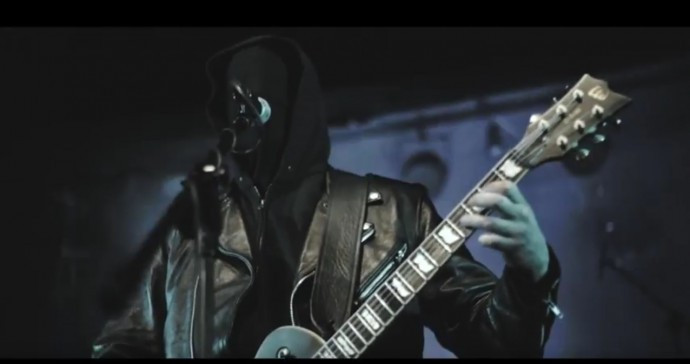
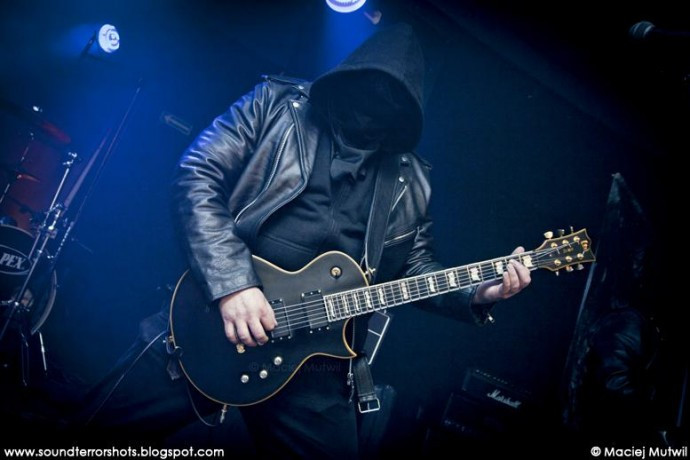
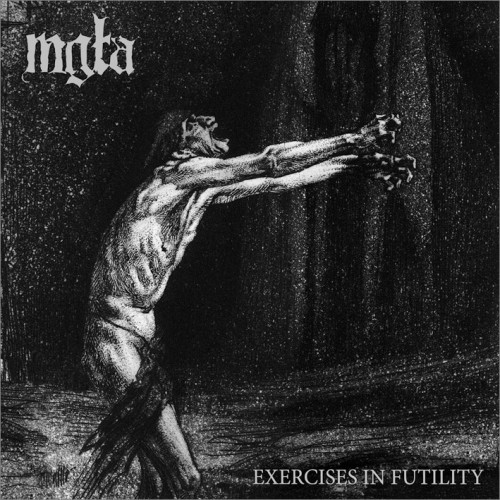
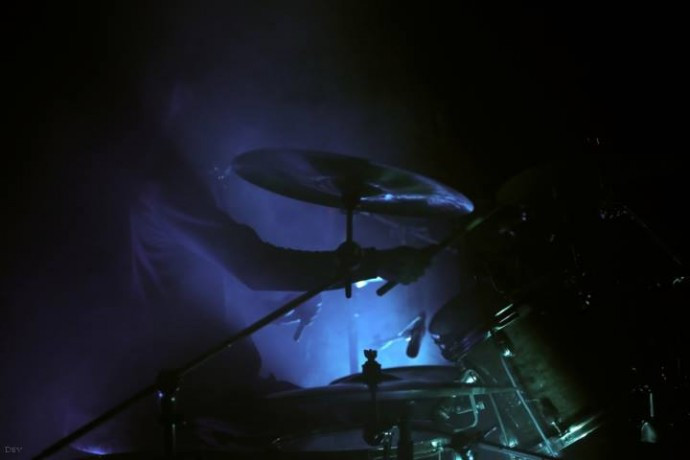
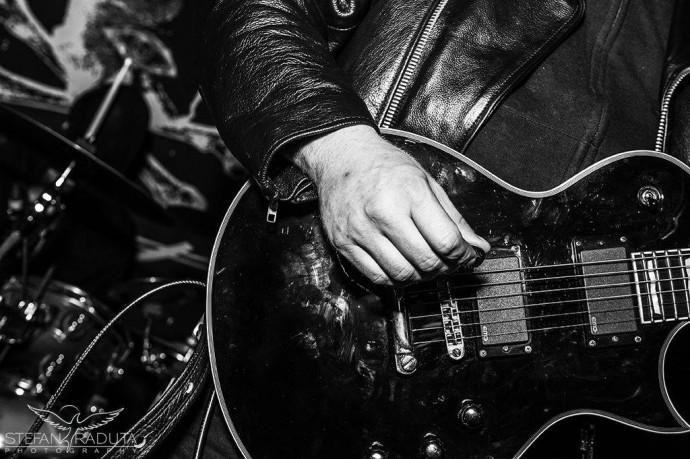
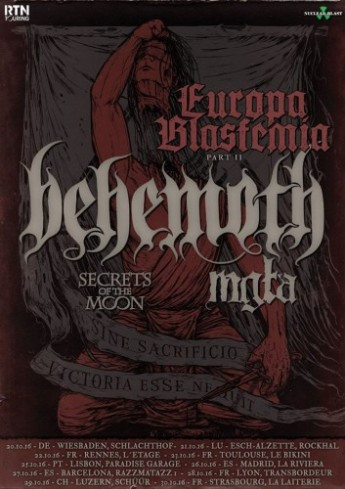
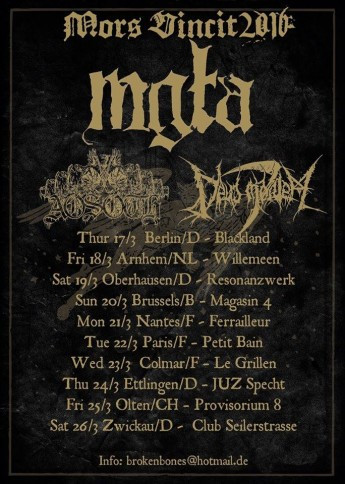
Thnx for the interview, I always knew these guys have a lot of sense behind their music and everything they do.
I feel very fortunate that we were able to get these answers. I was at the height of my enthusiasm about the album when I wrote the questions, having just heard it a couple of times, and I guess you can tell how curious and excited I was. 🙂
Interviews with Mgla is not somthing that comes out often. Thank you for conducting this interview. I find the answers very interesting and insightful.
Thank you very much for your comment. I’m glad you enjoyed reading it.
Well… Guess nows a good time to toss this one on and “get into it”.
Great interview!
Make haste and do that! (and thanks for the comment about the interview)
Nice to see an interview. Really hope to see them return to the US on an occasion other than a festival date. Thanks NCS!
Looks like I’ll be in Vienna for those October dates. Hopefully I can convince some classmates to go on a little field trip…
I am hopefully going to be hitting one of those Behemoth / SotM / Mgla shows.
Should be a fine evening of musical delicacies!
Ah. I’ve just indulged myself to a full revisit with Exercises in Futility.
Hail Mgła, and everyone that keeps the black flame bright and shining.
Enjoy the shows, folks. I envy you.
I’m envious too!
Thanks for this! It took me a while to really get into Mgła, but I was fortunate to see them in Brooklyn. That won me over and their records keep growing on me.
By the way, in case anyone was wondering, a polish friend told me that it’s pronounced something like “um-gwa” (=fog).
Thanks for the interview, very interersting thanks to your relevant questions, could not have been better.
My 2015 personal favourite album, I’ll see them in France with Behemoth, lucky me !
Echo the sentiment, great interview with a really compelling artist. “To me, it’s the „spark” and the emotions embedded in music that define black metal” – really resonated with this. This is what sets MGLA and other great bands apart from the rest. There is a genuineness, art made with integrity that doesn’t come easily. But these days its what I hold as a gold standard.
Couldn’t agree more.
Just back from seeing Mgla play alongside Slagmaur, One Tail One head, Ruins of Beverast and Dark sonority. and they were fantastic. they blew every other band away with their simple approach, perfect sound and focus on the music it self. ÈIF was my favorite album last year, and is still one of the albums i listen most to. If you get a chance to see them live, DO IT! It was a near-religious experience for a fanboy like me.
Good interview. im glad you asked so much about lyrics, as i always felt they are a very important part of Mgla.
So glad you got to see that show — what an amazing line-up.
Agreed..holy hell thats an impressive lineup
I loved all the questions you asked, they were relevant and intelligent. Thank you for posting this, Islander.
Thank you so much for that compliment.
Uh oh…all these comments make me think Mgla is officially too popular for me to like now 🙂
Don’t worry. Everyone in this comment thread is writing from a mental asylum.
Well, glad Im not the only one 🙂
Thank you for posting this interview, I found the questions well put and thought out and answers even more so. It actually provides a field to learn from for fellow interviewers like myself. Cheers!
Thank you!
thank you for this interview!
cheers from Brazil!